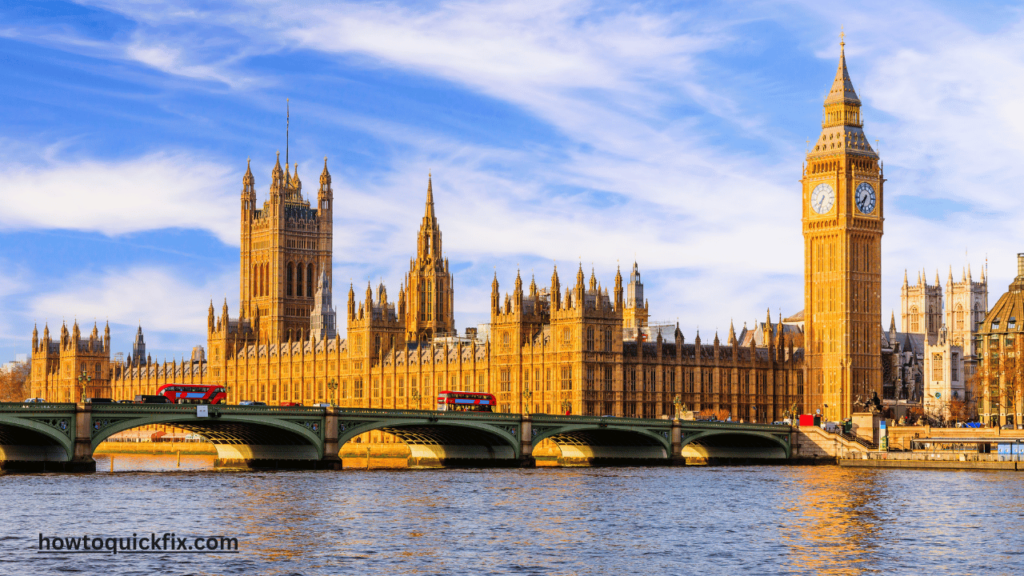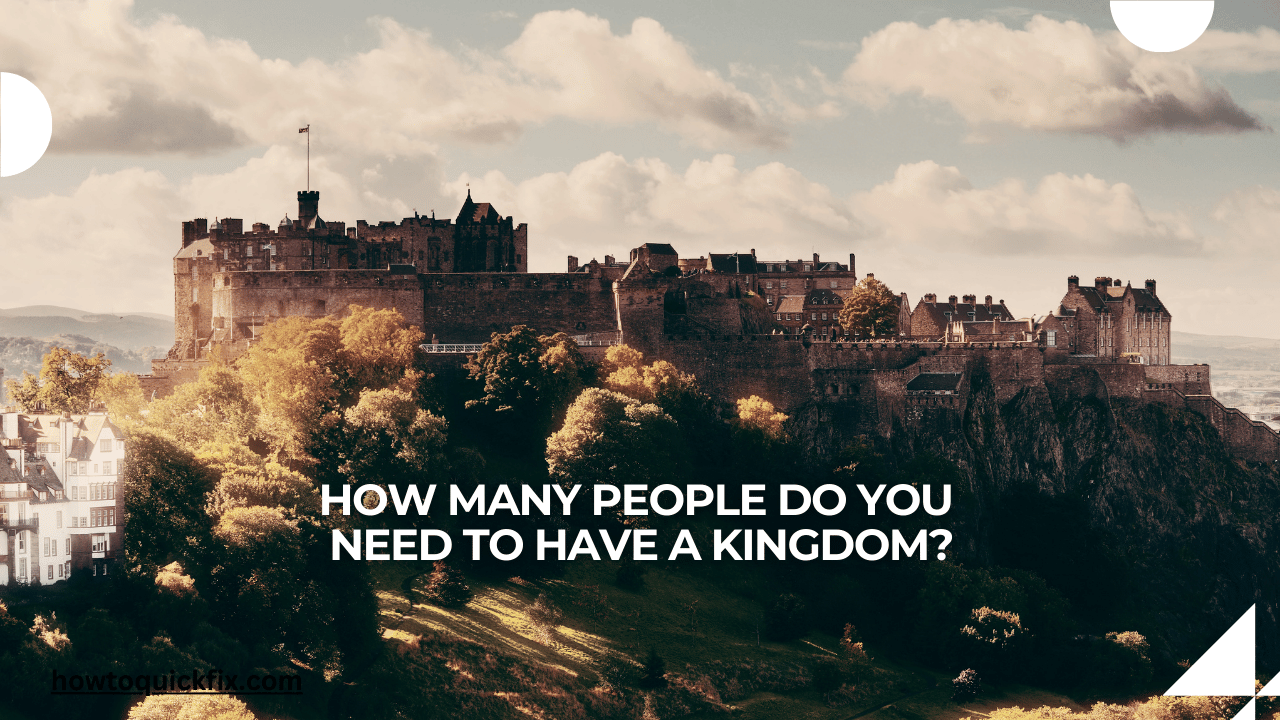Throughout history, the concept of a kingdom has fascinated many.
In the realm of fantasy and reality, a kingdom represents power, territory, and a ruling system. But how many people does it take to establish a kingdom? Is it a vast army of people, or can a small, tightly-knit group form a kingdom? The answer may surprise you.
A kingdom is more than just its number of subjects; it’s about the systems, structure, and power dynamics that bind people together under a common ruler. In this article, we’ll explore what it takes to form a kingdom, the necessary elements beyond population size, and why it matters in both historical and modern contexts.
Contents
- 1 The Basic Requirements: Territory and Leadership
- 2 The Role of the People: From Peasants to Nobles
- 3 The Economic Infrastructure: What Makes a Kingdom Thrive
- 4 Defensive Power: The Role of Military Force
- 5 Cultural and Social Structure: Building Unity Among People
- 6 Conclusion:
- 7 FAQ’s
- 7.0.1 How many people are needed to form a kingdom?
- 7.0.2 Do I need a large army to create a kingdom?
- 7.0.3 Can a kingdom exist with a small number of people?
- 7.0.4 How important is culture to a kingdom?
- 7.0.5 What is the role of leadership in forming a kingdom?
- 7.0.6 Can a kingdom survive without a strong economy?
The Basic Requirements: Territory and Leadership
To establish a kingdom, you need two primary components: territory and leadership. The territory is the physical space or land that you control, while leadership refers to the individual or group that governs the people.
A kingdom doesn’t require a massive number of people to exist. Early kingdoms were often small, with just a few hundred or thousand people living in a specific territory.
The defining characteristic was not the population, but the presence of a ruler or sovereign who held ultimate authority. The leader’s role is essential, whether they are a king, queen, or other ruling figure. The leadership creates a system of governance, laws, and protection, forming the backbone of a kingdom.
The Role of the People: From Peasants to Nobles
While leadership is crucial, a kingdom also relies on its people to maintain its existence. However, the number of people needed can vary.
In ancient times, kingdoms could function with just a small group of subjects; farmers, soldiers, and craftspeople were enough to sustain the kingdom.
As kingdoms grew in complexity, the roles of people expanded to include nobles, traders, and artisans. In these cases, the population could range from a few hundred to several thousand.
The more people in the kingdom, the more diverse the workforce became, contributing to the economy and the kingdom’s survival. But it’s not simply the number of people that matters—it’s the distribution of roles and the organization within the kingdom that determines its efficiency and strength.
The Economic Infrastructure: What Makes a Kingdom Thrive
A kingdom’s economy is an essential aspect that goes beyond just the number of people within its walls. For a kingdom to be successful, it needs a sustainable economy, including agriculture, trade, and industry.
A population of people must be able to support and sustain themselves within the kingdom’s economy, whether through farming, craftsmanship, or trading goods with neighboring areas.
Kingdoms that grew to have vast armies or influential global presence often had robust trade networks and resources that were well-managed.
For smaller kingdoms, the local economy might suffice, but for larger ones, building and maintaining trade routes and securing resources like precious metals, food supplies, and labor became increasingly important. This infrastructure kept the people employed and sustained the kingdom.
Defensive Power: The Role of Military Force
Another crucial aspect of a kingdom’s viability is defense. A kingdom without any form of protection or military force is at risk of being overthrown or attacked by rival kingdoms. While a kingdom may begin with just a handful of soldiers or guards, as it grows, so must its military strength.
The number of people needed to form a defensible kingdom depends on its geographic location and the potential for conflict.
A kingdom situated in an isolated area may require fewer military personnel, whereas a kingdom in a strategically important area might need a larger defense force to protect its borders. However, defense is not only about numbers.
A kingdom with well-trained soldiers, effective fortifications, and strong leadership can stand strong against greater numbers.
Cultural and Social Structure: Building Unity Among People

Beyond the physical and military aspects, a kingdom’s social and cultural unity is vital to its longevity.
The people of the kingdom must share common values, cultural practices, and a sense of identity under the leadership of their ruler. This unity allows people to work together for the common good and helps the kingdom thrive.
As kingdoms expanded, so did their social hierarchies.
From peasants to nobles, each person had a role, and the social system often reinforced loyalty to the kingdom and its ruler. A strong cultural identity also promoted unity and resistance against external threats.
When people felt connected to the land and their ruler, they were more likely to fight for the kingdom and contribute to its growth.
Conclusion:
The question of how many people are needed to form a kingdom is not a simple one.
While population size is important, a kingdom’s structure, leadership, economy, defense, and cultural unity all play critical roles in determining its strength and longevity. It is not necessarily the number of people that creates a kingdom but the organization and systems that hold it together.
In the end, quality and structure often trump quantity, and it is the careful balance of these elements that defines what it truly means to have a kingdom.
FAQ’s
How many people are needed to form a kingdom?
The number of people needed to form a kingdom can vary. A small kingdom could have only a few hundred people, while larger ones may require thousands. However, what matters most is the structure and organization of the kingdom, not just its population.
Do I need a large army to create a kingdom?
Not necessarily. While a kingdom requires some form of defense, the size of the military depends on the location and external threats. A well-trained, strategic defense force can be more effective than sheer numbers.
Can a kingdom exist with a small number of people?
Yes, a kingdom can exist with a small population if it has a strong leader, efficient governance, and a sustained economy. Early kingdoms often started with just a handful of people and grew over time.
How important is culture to a kingdom?
Culture plays a significant role in uniting people within a kingdom. A shared identity, cultural values, and loyalty to the ruler help create a sense of belonging and contribute to the kingdom’s strength.
What is the role of leadership in forming a kingdom?
Leadership is essential in establishing a kingdom. A ruler or governing body provides direction, sets laws, and ensures the kingdom’s people are protected, unified, and productive.
Can a kingdom survive without a strong economy?
A kingdom’s survival is heavily reliant on its economy. Without a strong economy—whether through agriculture, trade, or industry—a kingdom cannot sustain its population or military.








